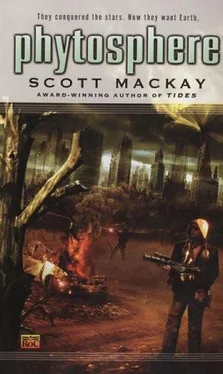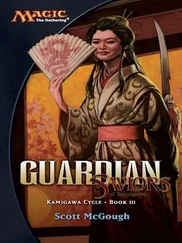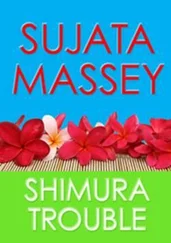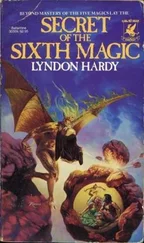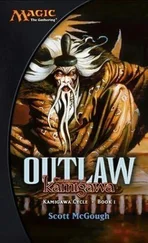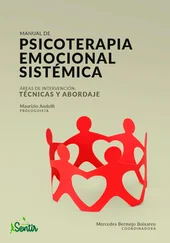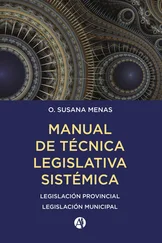“That’s because it works.”
“I believe his methods often lead to blind spots. Sometimes it’s better to step back. Sometimes it’s better to take the wide view. The kind of science Neil practices may be too goal-oriented. You have to let the science speak to you, not the other way around. You can’t dictate to the science, the way Neil does.” He shook his head and sighed. “I’m sorry, Luke, but you’re backing the wrong horse.”
“At least your brother has a horse.”
Gerry glanced at the others, then turned to the elderly Martian. “Then fine. Go, Luke. We don’t need you. Getting through the carapace isn’t going to make any difference in the long haul.”
“It’s Dr. Thorndike’s belief that it might make all the difference in the world.”
Gerry was in the Alleyne-Parma Observatory later that night. This… this tourist attraction was his primary research platform. Heaven’s Eye rose beside him, done up like a sea captain’s telescope, with gold curlicues and florets along the side. Maybe Luke was right. Maybe the Moon effort was ridiculous.
The observatory staff had gone home. He glanced at his watch. Just past midnight. The best time of day to think.
He sat in front of the monitors—the special ones the techies at AviOrbit had hooked up to Heaven’s Eye for him—and he had the distinct feeling, impossible yet magical, that Glenda would emerge from the shadows and tell him to come to bed. He was worried. If only he could get through. He thought of his den at home. She would come into his den, and she would say, “Come to bed, Ger, it’s getting late.”
And…and…He looked into the shadows of the observatory and realized he would give anything to see her one more time.
He turned back to the monitors and concentrated. He had to go back to asking basic questions. And he guessed the most basic question was this: Why were some spots on the phytosphere dark while others were light?
Gerry’s shoulders stiffened. He leaned forward and looked at the phytosphere more closely. “Good question, Gerry.”
Yes, here it was, the quiet nighttime inspiration. He remembered Luke Langstrom’s words. You sit inside a problem, look around, admire the view, and meditate. Maybe that was the only way. Maybe true insight came only to those who allowed their brains to function on several levels, in the wee hours of the morn.
The color variations proved elusive. He chose a couple of simple function keys and heightened the contrast. The difference between light and dark became more pronounced. Possible answers? Varying thickness. What would cause varying thickness in the phytosphere? Barometric pressure? Did the phytosphere have its own weather system? Sitting on top of the troposphere, with tentacles dropping down into the troposphere’s cold trap for moisture supply, did the phytosphere possibly echo, in a faint way, the disturbances that were happening in that real weathermaker?
He shook his head. He didn’t have the data to answer this question, and until he could measure the real-time weather in the troposphere against the mottling effect in the phytosphere, this particular hypothesis would have to remain in the realm of speculation.
Funny, the way the brain thought if you just let it go. Is this what the Tarsalans did? Let their brains go?
Both their brains? When he let go, questions linked themselves in long chains. The next link in the chain of this particular problem came to him unbidden: Was there a pattern to the color variation?
He focused on the real-time footage that was coming in directly from Heaven’s Eye.
He had to watch it for a half hour before he could say with any certainty that the shades were actually shifting—so slowly that the change was nearly imperceptible to the human eye.
He turned his attention to the archival footage of the shroud, over a month’s worth of nonstop round-the-clock digitized images, the kind of long-term observations he liked to watch so much. He keyed in a command that brought it right to the start, two days after the initial meeting in the H. G. Wells Ballroom.
He played the footage, sped it up—sometimes patterns became more apparent when they were accelerated.
He watched for the next hour, compressing a full day into sixty minutes. And he definitely saw dark patches change into light patches, and vice versa, but the attenuations were too random for him to definitively conclude that there was any pattern.
So he compressed a week into sixty minutes, and by the time three o’clock rolled around he had seen it seven times, an amorphous band of lighter coloration passing from east to west in a definite pattern.
Toward the equator, the band of lighter patches broke apart, and some even whirlpooled, as if caught in a weather system. He was somewhat disappointed. He felt fairly certain that what he had here was a kind of weather system inside the phytosphere. That it seemed to be on a daily cycle with a twenty-four-hour periodicity made him suspect it might be artificial, and that the Tarsalans had created it—maybe as a housecleaning tool for the phytosphere, or perhaps as one of its operational aspects.
He shook his head. He wasn’t sure how he could turn this to his advantage. He sighed as his shoulders sank. Was this another flagella-type dead end? Was the proper approach just to kill the phytosphere any way they could, rather than try to understand it first?
What could be another possible reason for the change in coloration, other than an artificially created weather system? A chemical change? What was an indicator of chemical change? Heat. Bingo. How could he measure heat? He would need to hook up some infrared equipment to this appalling tourist attraction.
He left the telescope and went to the circular hall ringing the observatory. He passed the washrooms, the gift shop, and finally came to the observatory office.
In the office, he phoned Mitch Bennett—he didn’t care what time it was; he had to talk to Mitch and find out whether this was doable.
“Hello?” The tone of Mitch’s greeting was worried, as one might expect from a phone call at three o’clock in the morning.
Gerry told him what he wanted.
“Infrared?” said Mitch, as if the request were impossible. “Have you met Ira Levinson? He’s the one everybody’s always mistaking for a brick wall.”
“I just want to get a better idea of what we’re looking at in terms of temperature fluctuations in the phytosphere. I could be on to something here, Mitch.” Or he could be grasping at straws.
“Yes, but we don’t have any infrared units out of mothballs right now. Years ago we used infrared for tracking, but since we upgraded to singularity drives, we haven’t used the infrared stuff in… in decades.
And I’m sure most of it’s been sold off.”
“Most?”
Mitch paused. “Ira and I have never gotten along.”
“Yes, but is there any left?”
“Hang on, let me check my waferscreen… it’s been acting funny lately. I’ll see if I can…” Mitch disappeared from the vidscreen and all Gerry got for a few seconds was a view of rumpled sheets. Then Mitch came back, sat on the bed, adjusted the vidcam upward, and Gerry saw his sleep-swollen face.
“I’m just looking at the record right now…. That stuff’s expensive.” Mitchseemed to be going through a long list. “Ira’s not going to want us dicking with it. If there’s any left, I’m sure he’s planning to sell it.
And anything earmarked for liquidation…He’s obsessed with the bottom line, Gerry. We’re in a competitive, high-stakes, frontier industry.”
“Yes, but can you—”
“Hold on, hold on… I’ve got it, and it’s…” He watched Mitch’s brow fold with misgiving. “Ah, shit .”
Читать дальше
